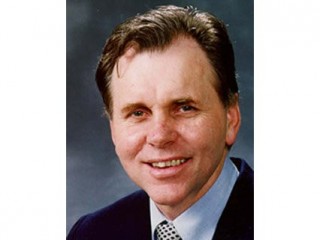
Barry J. Marshall biography
Date of birth : 1951-09-30
Date of death : -
Birthplace : Kalgoorlie, Western Australia, Australia
Nationality : Australian
Category : Science and Technology
Last modified : 2011-09-20
Credited as : physician, Nobel Prize for Physiology or Medicine, stomach ulcer
0 votes so far
Marshall obtained a bachelor's degree from the University of Western Australia in 1974. From 1977 to 1984 he worked at Royal Perth Hospital, and he later taught medicine at the University of Western Australia, where he also was a research fellow.
For decades, medical students were taught that chronic stomach ailments, including peptic ulcers and gastritis, were caused by stress, greasy food, or too much alcohol. Barry J. Marshall, an Australian physician, suspected that stomach ulcers are caused instead by a bacteria, Helicobacter pylori. His breakthrough came painfully in 1984, when, frustrated by failed efforts to infect lab animals with the H. pylori, he drank a few ounces of liquid containing the bacteria -- and promptly developed gastritis.
His work was not received enthusiastically. In Marshall's words, "When I was criticized by gastroenterologists, I knew that they were mostly making their living doing endoscopies on ulcer patients. So I'm going to show you guys. A few years from now you'll be saying, 'Hey! Where did all those endoscopies go to?' And it will be because I was treating ulcers with antibiotics." Many stomach ailments can now be cured permanently with a short prescription of antibiotics, and Marshall later developed an enzyme-based breath test for the presence of the bacterium. Marshall was awarded the Nobel Prize in Medicine in 2005, sharing the honor with his longtime collaborator, J. Robin Warren.
More recently, an interview with Marshall has been included in TV infomercials promoting World's Greatest Treasury of Health Secrets, a book of 'alternative' medical advice that includes an article on H. pylori. Marshall has stated that the nature of the book was not clear to him as edited the article, and that the brief, rather rushed interview was conducted amid the hubbub after he won his Nobel Prize. On his weblog, he has apologized to people who bought the book, but reassured readers that the book's article on H. pylori is factually accurate.
Prior to winning the Nobel Prize, Marshall had received the Albert Lasker Clinical Medical Research Award (1995) and the Benjamin Franklin Medal (1999) for his work on H. pylori. He also wrote several books, including Helicobacter Pioneers (2002), a collection of historical first-hand accounts of scientists who studied Helicobacter.
Awards and honors:
Lasker Award 1995
Benjamin Franklin Medal 1999
Nobel Prize for Medicine 2005 (with J. Robin Warren)
















